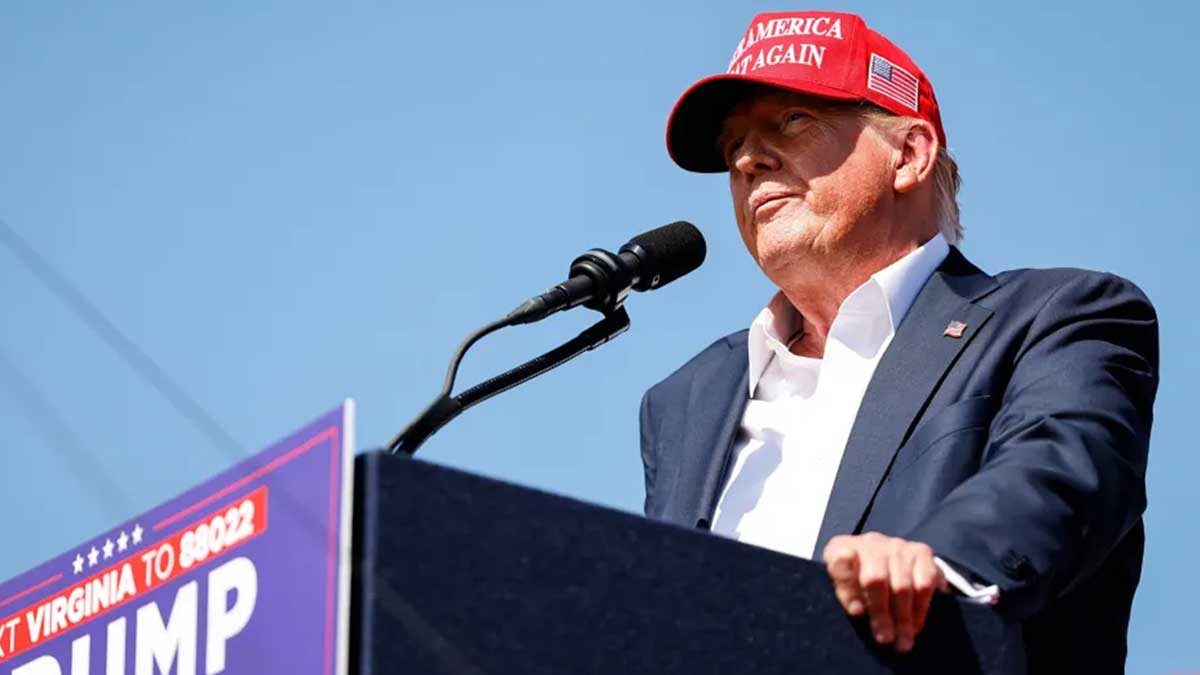- Home
- Billionaires
- Investing Newsletters
- 193CC 1000
- Article Layout 2
- Article Layout 3
- Article Layout 4
- Article Layout 5
- Article Layout 6
- Article Layout 7
- Article Layout 8
- Article Layout 9
- Article Layout 10
- Article Layout 11
- Article Layout 12
- Article Layout 13
- Article Layout 14
- Article Sidebar
- Post Format
- pages
- Archive Layouts
- Post Gallery
- Post Video Background
- Post Review
- Sponsored Post
- Leadership
- Business
- Money
- Small Business
- Innovation
- Shop
Recent Posts
Trump Claims Victory After Supreme Court Grants Partial Immunity

Former President Donald Trump celebrated a partial legal victory on Monday after the Supreme Court granted him limited immunity in his federal election interference case. While the court’s ruling provides some protection, it does not shield Trump from criminal charges related to actions beyond his official duties. Trump hailed the decision as a “BIG WIN FOR OUR CONSTITUTION AND DEMOCRACY” in a post on Truth Social, expressing his pride in being an American. He further claimed the ruling should bring an end to investigations he calls “Crooked Joe Biden’s Witch Hunts,” referring to ongoing cases against him, including the Manhattan hush money and New York civil fraud cases. Trump has repeatedly alleged without evidence that President Biden is orchestrating these prosecutions, and he suggested that the Supreme Court’s decision dismantled most charges against him, calling for Biden to “call off his ‘dogs.’”
The Supreme Court’s 6-3 ruling, split along partisan lines, returns the case to District Judge Tanya Chutkan, who will determine which charges can proceed based on the court’s guidelines. Trump had sought “absolute immunity” in the case, which includes charges of conspiracy and obstructing an official proceeding related to his efforts to challenge President Joe Biden’s 2020 victory. The ruling may delay the case until after the November election. Should Trump win the election, he could potentially instruct the Justice Department to dismiss the case.
In response to the ruling, the Biden-Harris campaign criticized Trump but did not challenge the ruling’s legal basis. The campaign accused Trump of having “snapped after he lost the 2020 election,” claiming he believes he is above the law and is willing to take extreme measures to maintain power. The statement suggested that Trump has become more erratic since January 6. The Supreme Court’s conservative majority granted Trump a partial victory after both Judge Chutkan and the Court of Appeals for the District of Columbia Circuit had rejected his immunity claim. Chief Justice John Roberts, writing for the majority, noted that while a president is not above the law, he may not be prosecuted for actions within his core constitutional powers. He is, however, presumed immune from prosecution for official acts. In contrast, Justice Sonia Sotomayor’s dissent argued that the ruling undermines the principle that no one is above the law and significantly alters the institution of the presidency.
Trump has also argued for immunity in his Georgia election interference case and his Manhattan hush money case, contending that statements made during his presidency should not be used against him. He has pleaded not guilty in the federal election interference case and labeled it, along with other charges, as “witch hunts” aimed at preventing his re-election. Judge Chutkan will now assess which charges can continue based on the Supreme Court’s decision. The ruling established that Trump’s conversations with former Vice President Mike Pence, where he allegedly pressured Pence not to certify the election results, are considered official acts. Additionally, Trump is immune from prosecution for directing the Justice Department to dispute the election results. Chutkan will also decide if Trump’s attempts to pressure state officials to challenge election results and his speech at the Capitol before the riots fall under official acts.
It remains unclear how a recent Supreme Court ruling, which found that federal prosecutors improperly used an obstruction law to charge Capitol rioters from January 6, will affect Trump’s case. The court ruled that the law, which charges defendants with obstructing an “official proceeding” for storming the Capitol while Congress certified the election results, can only be applied if defendants damaged physical evidence. This ruling could potentially influence the charges against Trump.
Recent Posts
Categories
- 193cc Digital Assets2
- 5G1
- Aerospace & Defense46
- AI37
- Arts3
- Banking & Insurance11
- Big Data3
- Billionaires451
- Boats & Planes1
- Business328
- Careers13
- Cars & Bikes76
- CEO Network1
- CFO Network17
- CHRO Network1
- CIO Network1
- Cloud10
- CMO Network18
- Commercial Real Estate7
- Consultant1
- Consumer Tech180
- CxO1
- Cybersecurity68
- Dining1
- Diversity, Equity & Inclusion4
- Education7
- Energy8
- Enterprise Tech29
- Events11
- Fintech1
- Food & Drink2
- Franchises1
- Freelance1
- Future Of Work2
- Games141
- GIG1
- Healthcare78
- Hollywood & Entertainment186
- Houses1
- Innovation42
- Investing2
- Investing Newsletters4
- Leadership65
- Lifestyle11
- Manufacturing1
- Markets20
- Media193
- Mobile phone1
- Money13
- Personal Finance2
- Policy567
- Real Estate1
- Research6
- Retail1
- Retirement1
- Small Business1
- SportsMoney33
- Style & Beauty1
- Success Income1
- Taxes2
- Travel10
- Uncategorized8
- Vices1
- Watches & Jewelry2
- world's billionaires420
Related Articles
Trump Moves $4B Stake in Truth Social Parent, Stock Drops 6%
Donald Trump recently transferred his 57% stake in Trump Media & Technology...
By 193cc Agency CouncilDecember 20, 2024House Rejects Trump-Backed Funding Bill, Shutdown Looms
The U.S. House of Representatives rejected a new government funding bill on...
By 193cc Agency CouncilDecember 20, 2024Trump Named Time’s Person of the Year for Second Time
On Thursday, Time magazine honored Donald Trump as its “Person of the...
By 193cc Agency CouncilDecember 12, 2024Meta Donates $1 Million to Trump’s Inaugural Fund
Meta, the parent company of Facebook and Instagram, has confirmed a $1...
By 193cc Agency CouncilDecember 12, 2024















Leave a comment